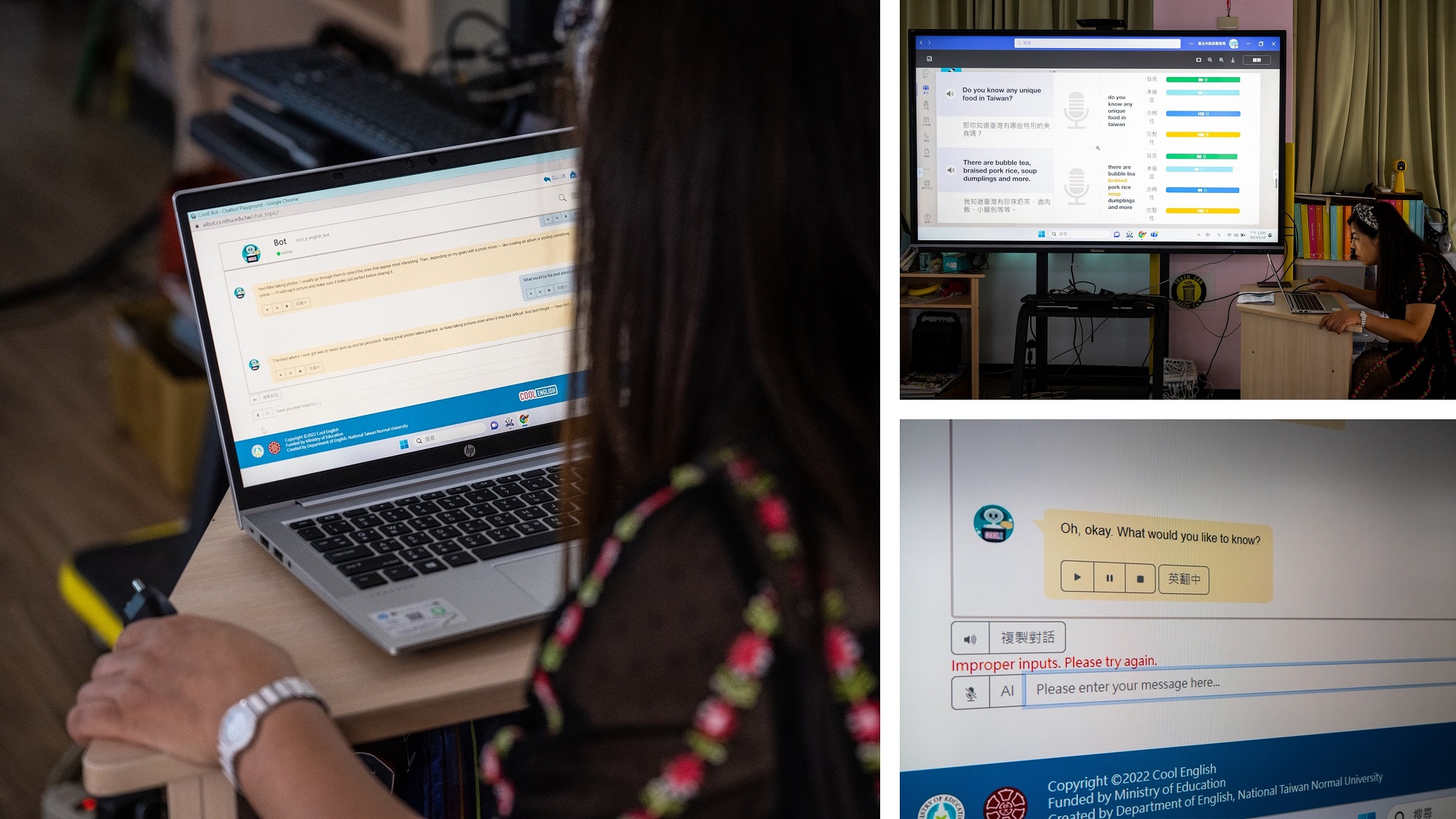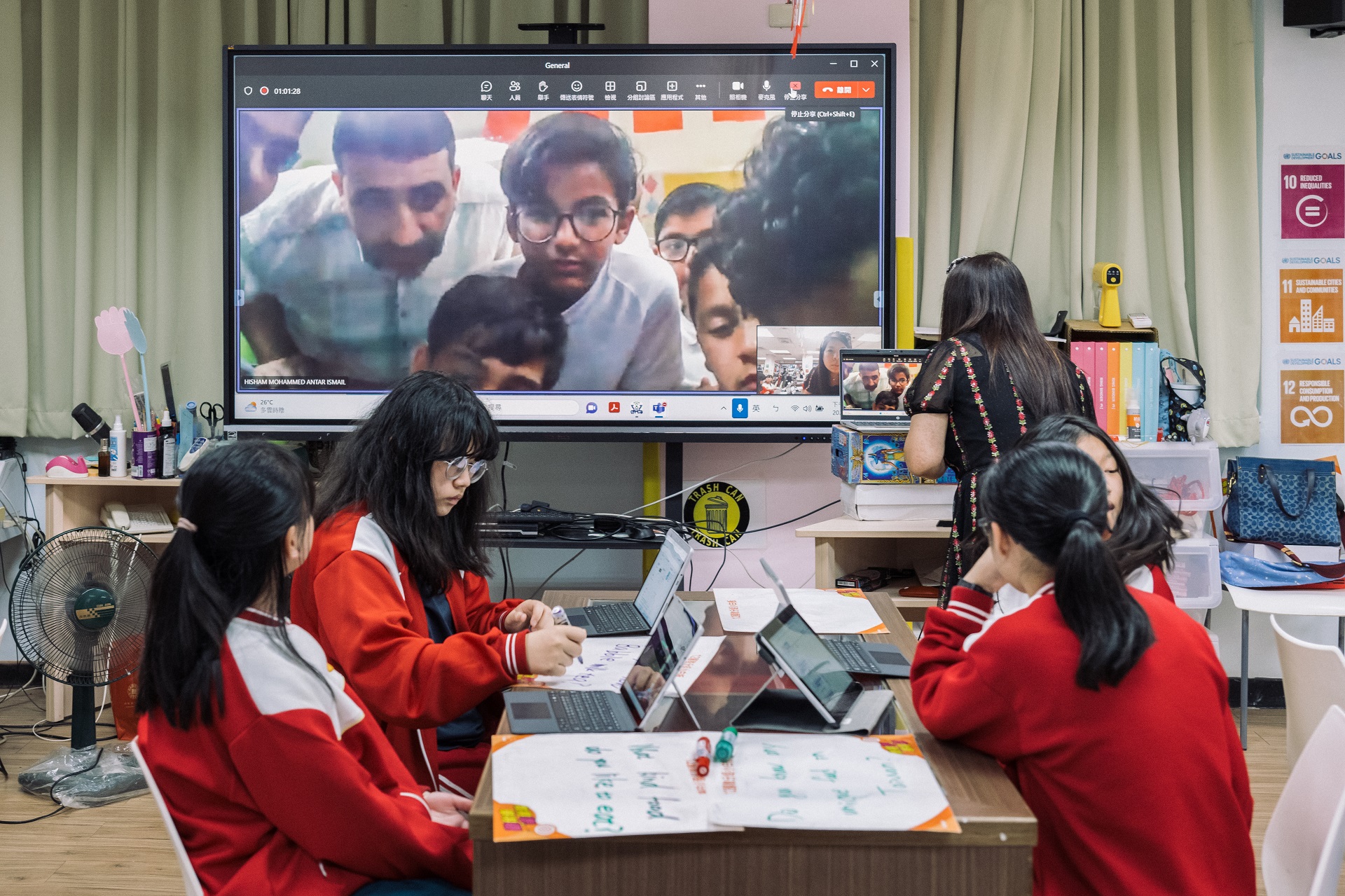Brand-new Taipei City, TAIWAN— Educators frequently report that trainees discovering English tend to check out and compose much better than they speak, as shyness and an absence of practice can prevent the capability to speak. Now, a chatbot moneyed by Taiwan’s Ministry of Education and operating on next-generation big language designs provides a method for K-12 trainees to get that practice, and in a more interesting method than was formerly possible.
The kids in Claire Mei Ling Wu’s English class at Er Chong Junior High in Sanchong District, New Taipei City, started utilizing the CoolE Bot right after it was introduced in late December.
Wu has actually been teaching English for over 25 years. Her class is embellished with a world map and nationwide flags. There are boxes of knickknacks– presents from pen friends in Japan, India and as far as the U.S. state of Alaska.
” Often when they are shy, they do not attempt to speak out,” Wu stated. Nevertheless, if they can stay at their desks and speak “person-to-AI,” Wu stated, they are more comfy than pertaining to the front of the class or standing in front of the instructor.
With the chatbot, which utilizes Azure OpenAI Service and other Microsoft AI innovations, trainees can choose among numerous predetermined discussion subjects– asking a medical professional or professional photographer about their work, for instance, or role-playing as an investigator to resolve a secret– and off they go. While older chatbots might just offer responses that were preloaded into the system, next-gen AI can create actions by itself.
The chatbot can likewise examine pronunciation, precision and fluency, and trainees can practice as often times as they like to raise their rating.
If they are baffled, they can click the “AI” button and the chatbot will recommend a concern to keep the discussion streaming. A content filter keeps things from drifting into improper area. If a trainee types or states a swear word, or something sexual, the chatbot responses in red type: “Inappropriate input. Please attempt once again.”

” It is intriguing, and I can discover English from it,” stated trainee Eva Zi Yu Huang, 13, eyes looking out in between long black bangs and a blue surgical mask.
Taiwan has actually set an objective of ending up being multilingual in Chinese and English by 2030 as its economy shifts from conventional production to more information or cloud driven organizations, where the worldwide language tends to be English. There are local competitive pressures. For instance, Taiwan completes financially with locations like Hong Kong and Singapore, previous British nests where English is extensively spoken.
” We wish to assist our trainees rapidly improve their English abilities to take on other nations,” stated Howard Hao Jan Chen, an English teacher at National Taiwan Typical University (NTNU).
In Taiwan, English classes are required in public schools for a couple of hours a week beginning in 3rd grade– with some schools beginning as early as very first grade, which broadens to approximately 4 hours a week in high school.
That’s not a great deal of time to master a language with an entire various script, grammar and pronunciation. Typical errors in English consist of dropping short articles, which do not exist in Chinese– leaving out “a” or “the”– and blending of tenses. Practice assists, however it can be difficult to discover somebody to do that with when you’re surrounded by Chinese speakers.
In 2015, Chen and his group introduced a site called Cool English to assist Taiwan’s schoolkids discover English utilizing innovation. The government-sponsored site now has about 1.5 million signed up users from Taiwan and beyond.
” The manner in which instructors teach is by checking out books and listening to numerous products through the Web. However the focus is not on speaking,” stated Scott Suen, a software application engineer on the Cool English group. “The majority of Taiwanese trainees can pass tests and get an extremely high rating, however if we are put in a native English environment, we have a tough time interacting with immigrants.”
To assist assist in more discussion practice, the group developed its very first chatbot utilizing an older AI-based shows language.
” We rapidly discovered it really troublesome,” stated Chen. “You need to key in all the possible responses for a concern raised by trainees– countless sentences to respond to trainees wisely. It’s not AI. It’s truly labor.”
Worse, he included: “We do not understand what sort of concerns trainees wish to ask! Trainees will not wish to have fun with this sort of ridiculous tool.”
The task went inactive for a while. In 2022, the group found out about next-generation big language designs. “We saw, wow, this is truly something!” Chen stated. “It was really robust. The responses are far more significant.”
The CoolE Bot, presented in December, rests on the Cool English site. It utilizes innovative language designs as part of Microsoft’s Azure OpenAI Service to engage trainees in discussion about a set of circumstances. The language is adjustable for various ages and efficiency levels.
The CoolE Bot utilizes Microsoft Azure Cognitive Service Speech abilities consisting of text-to-speech and speech-to-text. Trainees can choose several voices with American or British accents. And Azure offers the information security that’s especially essential when innovation is utilized in this setting.
” It’s a closed loop Azure membership,” stated Sean Pien, basic supervisor of Microsoft Taiwan. “All discussion, finetuning and products are within this protected domain.”
Up until now, about 30,000 trainees a month are presently utilizing the chatbot, acquiring an overall of one million discussions a month.
The group is now dealing with enhancements, consisting of including avatars and brand-new circumstances for discussions. In the future, as advanced designs are offered, the tool will likewise have the ability to appropriate mistakes, Chen stated.
Just recently, Wu’s class utilized the chatbot to get ready for a video call with equivalents in Bahrain, where the objective was to practice English and learn more about each other.

Throughout the call, the Taiwanese kids took on some huge words with ease.
” The National Palace Museum has about 700,000 pieces of Chinese royal art work, making it among the biggest collections on the planet,” stated Eva, the seventh grader, in front of her class along with the Bahrain trainees onscreen.
” The Longshan Temple in Taipei is a spiritual, political and military center in Taipei City and has actually ended up being a destination for foreign travelers in the post-war duration,” a young boy with eyeglasses called Frank Pan stated.
When one trainee stumbled over the word “tank,” a chorus of voices assisted her out.
After the kids played an online test together, the Taiwanese trainees were thrilled to ask concerns they had actually documented for the Bahrain trainees.
” Exist any deserts in your nation?”
” Is your school a young boys’ school?”
” What sort of transport do you have in your nation?”
” Have you intoxicated bubble tea?”
And more.
Leading image: Eva Zi Yu Huang, 13, and fellow English trainees in Taiwan contend in an online test with equivalents in Bahrain. Picture by Billy H.C. Kwok for Microsoft.